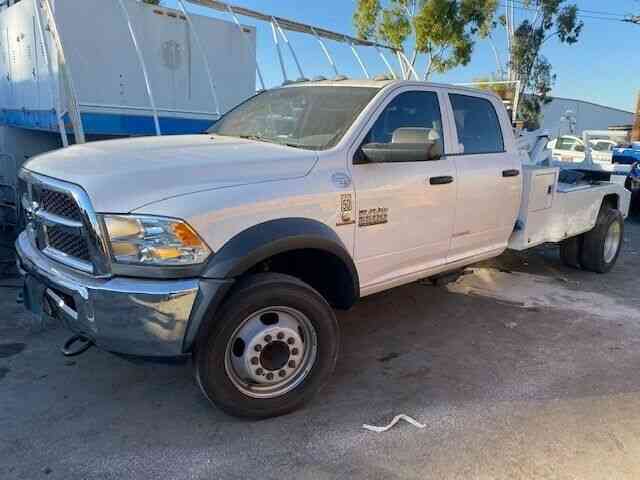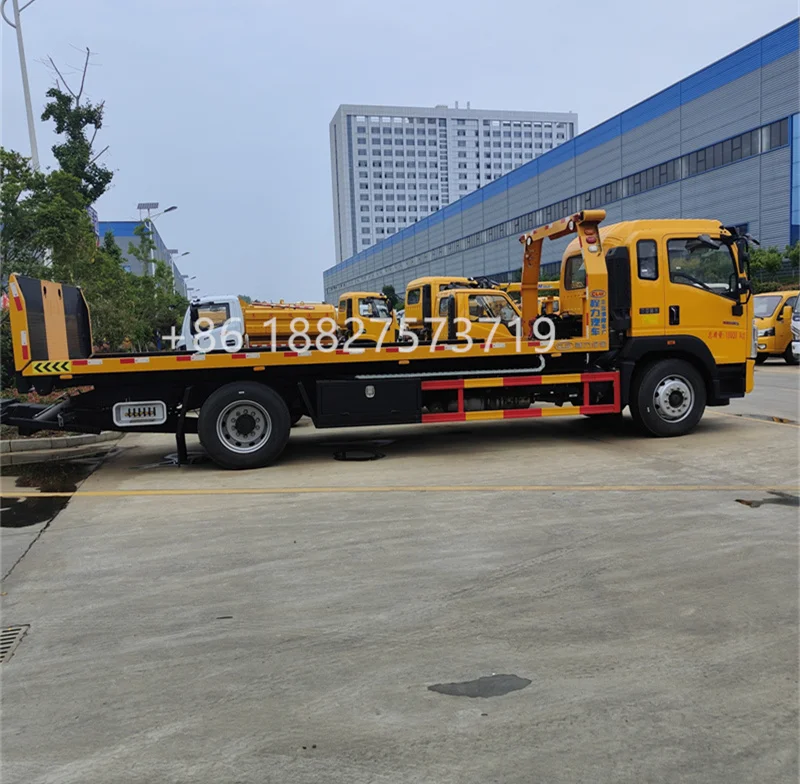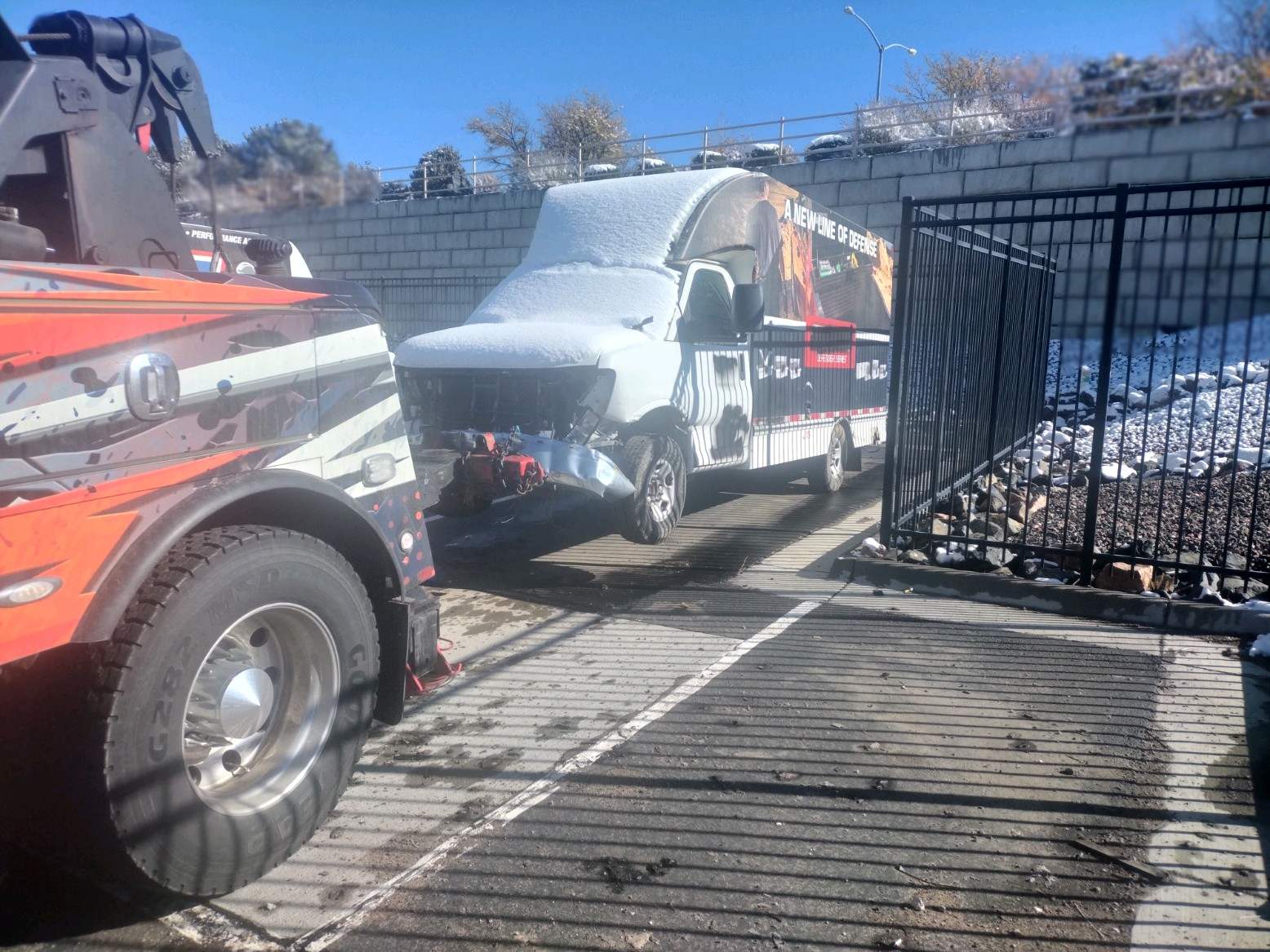Wrecked Tow Trucks For Sale: Unearthing Value in the Aftermath pickup.truckstrend.com
The sight of a mangled tow truck, often bearing the scars of its own recovery mission or an unforeseen accident, might seem like a tragic end for a workhorse. However, for a discerning few, these "wrecked" vehicles represent a unique opportunity. Far from being scrap, a wrecked tow truck for sale can be a goldmine for parts, a challenging yet rewarding restoration project, or even a cost-effective way to expand a fleet. This comprehensive guide delves into the world of distressed tow truck assets, exploring why they appeal, where to find them, and the crucial considerations before making a purchase.
Why Buy a Wrecked Tow Truck? Uncovering the Value
Wrecked Tow Trucks For Sale: Unearthing Value in the Aftermath
The primary allure of a wrecked tow truck lies in its significantly lower price point compared to a fully operational, pre-owned, or brand-new unit. This cost-effectiveness opens up several avenues for potential buyers:
- Parts Harvesting: For established towing companies, a wrecked truck of a similar make and model can serve as an invaluable donor vehicle. Essential components like winches, booms, underlifts, hydraulic pumps, PTOs, axles, and even specific engine or transmission parts can be salvaged, saving thousands in new part costs and reducing downtime for active fleet vehicles.
- Strategic Restoration: With the right mechanical expertise and a keen eye for value, a severely damaged truck can be brought back to life. This is particularly appealing for those with in-house repair capabilities, allowing them to acquire a high-value asset at a fraction of its market price, then invest in repairs for significant equity gain or fleet expansion.
- Specialized Projects: Some buyers look for wrecked trucks for non-traditional uses. A heavy-duty wrecker chassis, even with significant cab damage, might be repurposed for off-road recovery, a farm utility vehicle, or even custom builds, where the specialized recovery equipment is the main draw.
- Learning and Training: For aspiring mechanics or those looking to expand their heavy-duty repair skills, a wrecked tow truck offers a hands-on, real-world learning experience without the pressure of working on a client’s vehicle.
The potential for high return on investment, whether through direct use or part sales, makes the market for wrecked tow trucks a fascinating niche for those willing to look beyond the damage.

Types of Damage and Their Implications
Understanding the nature and extent of the damage is paramount when evaluating a wrecked tow truck. Not all "wrecks" are created equal, and the type of damage dictates the feasibility and cost of repair.
- Cosmetic Damage: This includes dents, scratches, broken lights, shattered glass, and damaged body panels. Often the easiest and most affordable to repair, these trucks might still be mechanically sound, making them excellent candidates for restoration.
- Minor Mechanical Issues: The engine might not run, or there could be transmission problems, but the core structure remains intact. These often result from accidents that affect the front end (radiator, fan, wiring) or non-drivetrain components. Repair can be straightforward if parts are available.
- Significant Mechanical Damage: This category includes major engine failures, transmission catastrophic failures, or extensive damage to the hydraulic system, boom, or underlift components. Repairs can be costly and complex, potentially requiring specialized tools and expertise.
- Structural Damage: Damage to the frame, cab, or subframe is the most severe. A bent or twisted frame can compromise the vehicle’s integrity, making it unsafe to operate even after repairs. Such trucks are often best suited for parting out, as frame straightening and re-alignment are incredibly expensive and not always fully effective.
- Fire Damage: The extent varies from minor electrical fires to full cab or engine compartment conflagrations. Fire can melt wiring, damage electronics, warp metal, and compromise structural integrity, often leading to a total loss.
- Flood Damage: Water ingress can wreak havoc on electrical systems, interiors, and even engines if the water level was high enough. Saltwater damage is particularly destructive due to corrosion. Flood-damaged vehicles often present hidden long-term issues and are generally high-risk.


Implications: The type of damage directly impacts the vehicle’s title (e.g., salvage title), insurability, and the overall cost and feasibility of repair. Always obtain a detailed damage report and, if possible, conduct an in-person inspection.
Where to Find Wrecked Tow Trucks for Sale
The market for wrecked tow trucks is specialized, but several reliable avenues exist for finding these assets:
- Online Salvage Auctions:
- Copart & IAAI (Insurance Auto Auctions): These are the largest platforms for salvage vehicles, including heavy equipment. They host daily online auctions with a vast inventory from insurance companies, rental fleets, and municipalities. Buyers can find detailed photos, vehicle history reports, and sometimes even video inspections.
- Government & Municipal Auctions: Local and state agencies often auction off impounded or surplus vehicles, which can sometimes include wrecked tow trucks.
- Specialized Heavy Equipment Dealers: Some dealers focus on selling damaged or salvage heavy equipment, including tow trucks. They may offer a more curated inventory and potentially provide some level of pre-assessment.
- Direct from Towing Companies or Insurance Adjusters: Occasionally, smaller towing companies might sell their damaged units directly. Networking within the industry or contacting local insurance adjusters can sometimes unearth these private sales.
- Local Impound Lots & Police Auctions: Vehicles that have been seized or abandoned and then involved in accidents might end up here. These sales are often "as-is, where-is" with limited inspection opportunities.
- Online Classifieds & Marketplaces: Websites like Craigslist, Facebook Marketplace, or specialized heavy equipment forums can list individual sellers. Exercise extreme caution, verify all information, and always inspect in person before committing.
The Buying Process: A Step-by-Step Guide
Purchasing a wrecked tow truck requires diligence and a methodical approach to mitigate risks.
- Define Your Goal & Budget: Are you buying for parts, restoration, or a specific project? This dictates the type of damage you can tolerate and your maximum budget for purchase and potential repairs.
- Research & Identify Prospects: Browse auction sites or dealer inventories. Filter by make, model, year, and damage type. Look for comprehensive photos and descriptions.
- Obtain Vehicle History & Damage Reports: Most reputable auction sites provide VIN reports (e.g., Carfax, AutoCheck) and detailed damage assessments. Understand the history of the wreck and any previous incidents.
- Crucial: The Inspection:
- Remote Inspection: If in-person is not possible, hire a third-party inspector specializing in heavy equipment. They can provide detailed photos, videos, and a professional assessment of the damage, engine condition, and overall structural integrity.
- In-Person Inspection: The best option. Look for frame damage, signs of water or fire, fluid leaks, electrical issues, and assess the condition of the specialized towing equipment. Bring a mechanic if you’re not one.
- Understand the Title Status:
- Salvage Issued when a vehicle is deemed a "total loss" by an insurance company (repair cost exceeds a certain percentage of its value). It can be repaired but will always carry this designation, affecting resale value and insurability.
- Rebuilt/Reconstructed Issued after a salvage vehicle has been repaired and inspected to meet safety standards.
- Clean Rare for a wrecked vehicle, but possible if the damage was minor and not reported to insurance, or if sold by the original owner without insurance involvement.
- Bidding/Negotiation: Set a maximum bid or offer based on your assessment of repair costs and the truck’s potential value. Factor in auction fees, buyer premiums, and transportation costs.
- Arrange Transportation: Wrecked trucks are often inoperable and require specialized towing or flatbed transport. Factor this cost into your budget.
- Post-Purchase Planning: Secure storage, begin sourcing parts, and plan your repair strategy. Be prepared for unexpected issues to arise during the repair process.
Essential Considerations Before You Buy
Purchasing a wrecked tow truck is not for the faint of heart. Success hinges on realistic expectations and thorough due diligence.
- Realistic Repair Cost Assessment: This is the biggest pitfall. Obtain quotes for major components (engine, transmission, boom, winch) and labor. Add a significant buffer (20-30%) for unforeseen issues.
- Availability of Parts: Older or specialized models might have scarce or expensive replacement parts. Research part availability and pricing before committing.
- Skills and Resources: Do you have the mechanical expertise, specialized tools, and workshop space required for heavy-duty repairs? If not, factor in outsourcing costs.
- Time Commitment: Restoration projects can be lengthy, especially if waiting on parts or specialized services.
- Legal & Regulatory Compliance: Understand your state’s laws regarding salvage titles, inspections for rebuilt vehicles, and re-registration.
- Resale Value: A restored salvage vehicle will typically sell for less than a clean-title equivalent, even if fully repaired. Factor this into your projected ROI.
- Hidden Damage: Some damage, especially from floods or subtle structural twists, can be difficult to detect without extensive disassembly. Assume some level of hidden issues.
Restoration vs. Parting Out: Making the Decision
Once you acquire a wrecked tow truck, the crucial decision is whether to restore it or dismantle it for parts.
Factors Influencing the Decision:
- Extent of Damage: Severe structural or widespread damage strongly favors parting out.
- Market Value of Components: Is there high demand for the specific boom, winch, or engine of that model?
- Cost of Restoration vs. Market Value: If repair costs approach or exceed 70-80% of the truck’s operational market value, parting out is often more financially sound.
- Your Skills & Resources: Do you have the time, expertise, and facilities to undertake a major restoration?
Restoration:
- Pros: Potential for a fully operational truck at a lower overall cost; personal satisfaction of bringing a vehicle back to life.
- Cons: High time and financial investment; risk of unforeseen costs; lower resale value compared to clean-title trucks.
Parting Out:
- Pros: Potentially quicker ROI; avoids complex repair liabilities; maximizes value from functional components.
- Cons: Labor-intensive dismantling; requires storage space for parts; slower sales cycle for individual components; disposal costs for the remaining scrap.
Careful calculation of potential revenue from selling parts versus the total cost of repair (parts + labor + acquisition) compared to the market value of a similar operational truck will guide this critical decision.
Wrecked Tow Trucks For Sale: Estimated Price Guide
Please note: Prices for wrecked tow trucks vary enormously based on make, model, year, specific equipment (e.g., heavy-duty wrecker vs. light-duty flatbed), location, and precise extent of damage. This table provides hypothetical ranges for illustrative purposes only. Always conduct thorough due diligence.
| Damage Level & Type | Type of Tow Truck (Example) | Estimated Price Range (USD) | Repair Difficulty | Potential Use |
|---|---|---|---|---|
| Minor Cosmetic | Light-Duty Flatbed (F-450) | $5,000 – $15,000 | Low | Restoration for light-duty fleet, personal use |
| Medium-Duty Wrecker | $10,000 – $25,000 | Low-Moderate | Restoration for fleet, parts if specific components needed | |
| Moderate Mechanical | Light-Duty Flatbed (Engine/Trans issue) | $3,000 – $10,000 | Moderate | Restoration (if core components are fixable), parts donor |
| Medium-Duty Wrecker (Hydraulic pump/PTO) | $8,000 – $20,000 | Moderate-High | Restoration (if specialized equipment is intact), parts donor | |
| Significant Structural | Heavy-Duty Wrecker (Frame bent, cab crushed) | $5,000 – $18,000 | Very High (often impractical) | Primarily parts donor for boom, winch, axles, hydraulics |
| Light-Duty Flatbed (Frame damaged) | $1,000 – $5,000 | Very High | Parts donor for bed, wheel lift, engine/trans (if intact) | |
| Fire/Flood Damaged | Any Type (Severe) | $500 – $5,000 | Extremely High (rarely viable) | Scrap value, very limited specific parts (e.g., boom if untouched by fire) |
Note: These prices do not include auction fees, buyer premiums, transportation, or repair costs.
Frequently Asked Questions (FAQ)
Q1: Is it legal to buy a wrecked tow truck?
A1: Yes, it is perfectly legal to buy a wrecked tow truck. However, depending on the extent of the damage, it will likely come with a "salvage title." You must understand your local laws regarding repairing and registering a salvage vehicle, as it will require inspections before it can be legally driven on public roads.
Q2: How can I accurately assess the extent of the damage?
A2: The best way is an in-person inspection by a qualified heavy equipment mechanic. If that’s not possible, hire a reputable third-party inspection service. Always review all available photos, videos, and vehicle history reports (like VIN checks) provided by the seller or auction house. Look for signs of structural damage, fluid leaks, electrical issues, and hidden rust or corrosion.
Q3: Can I get financing for a salvage vehicle?
A3: It is extremely difficult to obtain traditional financing for a vehicle with a salvage title. Most lenders consider them too high-risk. Buyers typically need to pay with cash or secure a personal loan.
Q4: What’s the difference between a "salvage title" and a "rebuilt title"?
A4: A salvage title is issued when an insurance company declares a vehicle a "total loss" because the cost of repair exceeds a certain percentage of its value. A rebuilt title (also called "reconstructed" in some states) is issued after a salvage vehicle has been fully repaired, passed a rigorous safety inspection, and is deemed roadworthy again. Vehicles with rebuilt titles are generally more insurable and command higher prices than those with just salvage titles.
Q5: How much does it cost to transport a wrecked truck?
A5: Transportation costs vary widely based on distance, the truck’s weight, its condition (operable vs. non-operable), and the type of transport required (flatbed vs. specialized heavy hauler). It can range from a few hundred dollars for local transport to several thousand for cross-country hauls. Always get a quote from a specialized heavy equipment transport company.
Q6: Is it worth repairing a flood-damaged tow truck?
A6: Generally, flood-damaged vehicles are considered high-risk and are often not worth repairing, especially if the water reached the engine or electrical components. Water, especially saltwater, causes long-term corrosion, electrical gremlins, and mold issues that can be incredibly costly and difficult to fully resolve. Most experts advise against it unless the damage was minimal and quickly addressed.
Conclusion
The market for wrecked tow trucks for sale is a niche but potentially lucrative one for those with the right skills, resources, and a keen understanding of value. Whether seeking a donor vehicle for parts, a challenging restoration project, or a cost-effective fleet expansion, the opportunities are there. However, success in this arena hinges on meticulous research, realistic financial planning, thorough inspections, and a clear understanding of the risks involved. By approaching the process with due diligence and a calculated strategy, buyers can unearth significant value from vehicles that, at first glance, appear to be beyond repair. It’s about seeing beyond the damage to the underlying potential, transforming what others might deem scrap into a functional asset.



